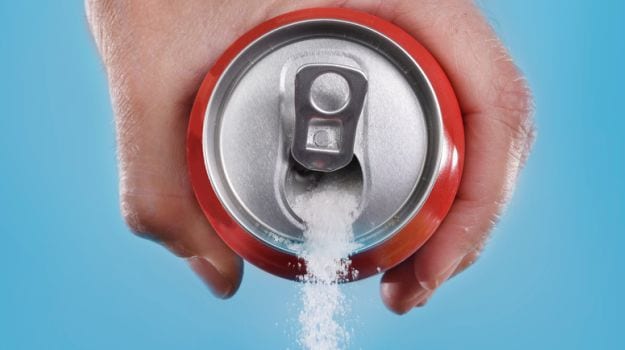PhotoCredit:istock
For many American teens, the stars of pop music are like gods. They want to dress like them, talk like them, dance like them and perhaps even eat like them.
That has New York University researcher Marie Bragg worried. Bragg, who focuses on environmental and social factors that impact how people eat, was noticing that more and more music celebrities are endorsing snacks and drinks, and she wanted to get a sense of what it was they were actually selling. She knew from previous research that celebrity endorsements of food do what they are intended to do in terms of increasing people's preferences of a particular product and that when many people - particularly children - see food ads they tend to overeat.
In an analysis published this week in the journal Pediatrics, Bragg put together a database of A-list stars, whom she defined as those associated with the 2013 and 2014 Billboard Hot 100 Chart, and their endorsements, which were gathered from official company websites, YouTube commercials, an advertising database and media reports.
The list includes Katy Perry's and Beyoncé's endorsement deals with Pepsi, Justin Timberlake's involvement in the McDonald's "I'm Lovin' It" tune, and Snoop Dogg's ads with Hot Pockets - those cheesy, microwave turnovers, and Monster Energy, the caffeine-loaded drink that is so potent most governments require warning labels telling consumers not to drink too much.
She then assessed the nutritional quality of the food according to a well-respected index and drinks according to their calories from added sugars. If you've been following the recent changes to the U.S. Dietary Guidelines for Americas and the new Food and Drug Administration nutrition facts label updates, you probably recall that our thinking about added sugars has changed dramatically in recent years. These are sugars that are mixed into food during processing (as opposed to sugars that come naturally in things like fruit). Nutrition scientists now think that if you have consumed too much it can wreak havoc on your body and metabolism, putting you at higher risk for problems such as heart disease and diabetes.
The final list contained 590 endorsements by 163 celebrities total. That included 57 different foods and beverages promoted by 65 celebrities. (The other endorsements were for consumer goods such as fragrances and retail.) In terms of numbers of food and beverage endorsements, Baauer, will.i.am, Justin Timberlake, Maroon 5 and Britney Spears were at the top of the list.
Bragg and her team found that the nutrition content of most of those consumables was alarmingly poor: 81 percent of the food being endorsed was unhealthy and 71 percent of the drinks was sugar-sweetened. She referred to these types of food as "energy-dense, nutrient-poor products."
Bragg drew parallels between the food and beverage marketing that is going on today with the tobacco marketing of the past - a situation that created generations of smokers by glamorizing the practice. In recent years, governments and companies themselves have made more of an effort to protect children 12 and younger from undue influence from advertising that may lead them to make poor choices. In Canada in 2007, for instance, major companies such as Campbell, Kraft and Nestle said that at least 50 percent of their advertisements would promote healthy diet choices.
Bragg said more protections are needed for teens.
"We know they are a prime target given their spending power," she said in a call with reporters Monday. "We hope that this study will start a discussion about shifting these marketing products away from unhealthy products."
(c) 2016, The Washington Post









